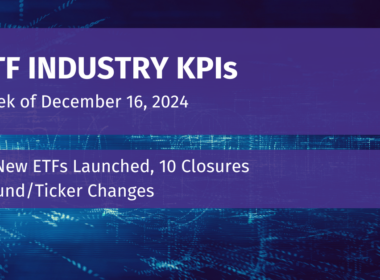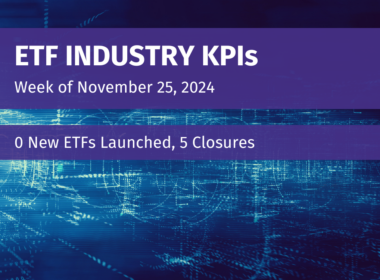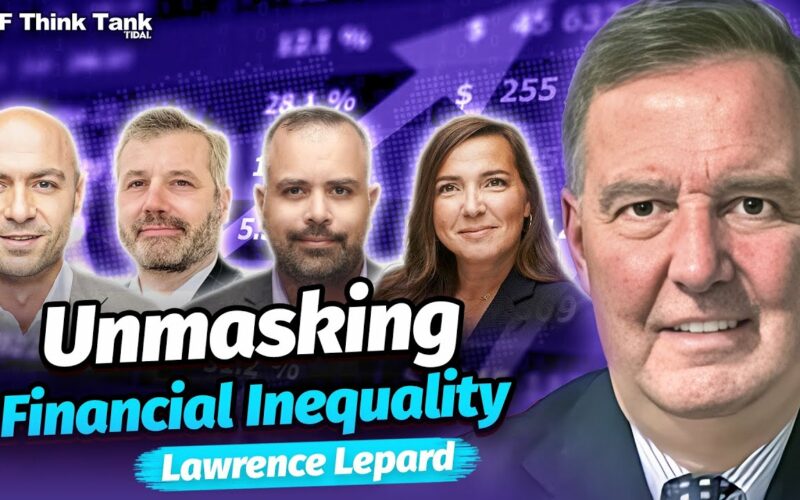The idea of doing good with your investment dollars has been around for years. While ESG investing looks to avoid companies that do not meet certain environment, social, and governance guidelines, D investing can provide more direct support to a specific cause. Ethan Powell, the founder of Impact Shares, uses his non-profit company to help organizations translate their social values into an investable product. One of the firms he’s partnering with is the YWCA to bring ETFs to the marketplace focused on minority and women’s empowerment. He joins the ETF Think Tank along with Jill O’Donovan of the YWCA to discuss how they’re reimagining the way people invest.
Powell explains that the challenge of traditional ESG investing is that it’s difficult to communicate the benefits if all you’re doing is screening out companies. Instead of eliminating companies that don’t qualify, an ETF might look to include companies that do qualify. Through ESG ETFs, one might look to create outcomes that benefit not only shareholders, but also certain impactful causes. Powell acknowledges that there’s a natural distrust between the investment side and the ESG side and he wants his company to breed a trust and understanding with impact partners and advocacy individuals. Impact Shares is also a 501(c)3 non-profit organization and donates part of the profits to its partners, a quality that attracted the YWCA to the company.
The partnership looks at several criteria to determine whether or not a company is meeting the women’s empowerment objective. O’Donovan offers examples, including being a signatory to the U.N.’s women’s empowerment principles, having flexible work options in place, paternity policies, and fair hiring with pay and promotion. Powell says that you’d think these things would be ubiquitous, but they’re just not. O’Donovan adds that she was initially surprised by how much she had to explain their criteria to people and how many people didn’t understand why they were important. They’re both hoping that enough progress is made to the point where these things don’t need to be criteria any longer.
Powell says he’s still trying to demonstrate the long-term efficacy of the impact investing strategies. Currently, there are studies that show links between women’s empowerment initiatives and investment alpha. For example, stronger diversity has led to higher returns on equity. Firms with female CFOs have delivered more profit than their sector averages. The math is there and there are studies backing these ideas. Typically women’s empowerment and minority empowerment ETFs also have strong Morningstar ratings.
For the industry in general, the ability to see the portfolio’s holdings daily and see who’s doing well on the empowerment front could provide inspiration to a company if they don’t find that they’re in the index. Powell says that he views it from the standpoint that everyone has something to learn. They’ve had conversations with major corporations, including McDonald’s, about the appropriate selection criteria and they want to have more of these conversations going forward. They know what the objectives are and the data is there to back it up, so there’s great willingness to explain where others may be falling short. It helps to be able to answer the questions.
Other key takeaways:
- While the YWCA has the background in addressing social issues and problems, O’Donovan said that they really needed to educate themselves on what an ETF was, how it worked, and why it was the right structure for this investment. Powell said that his company brought the financial industry expertise and the YWCA brought the brainpower. Both found the transparency of the portfolio and the selection criteria to be very advantageous.
- Powell says that annual turnover is around 10-15%. He notes that a lot of companies are improving their relative scores and he and O’Donovan want this to become part of the corporate ethos. In a sense, they’re trying to create a bit of a horse race. If you’re stagnant, you might get lapped and you need to re-up your commitment.
- Powell and O’Donovan would both love to see these products become a bigger part of workplace retirement plans. They view the funds as potentially a key part of a long-term retirement strategy.
- Financial advisors need to ask clients how intentional they want to be with their social tilt. For some, ESG is adequate, but you really need to look at what the objective is and gear your strategies towards that. Powell says that his funds can’t necessarily be all things to all people.
Disclosure
All investments involve risk, including possible loss of principal.
The material provided here is for informational purposes only and should not be considered an individualized recommendation or personalized investment advice. The investment strategies mentioned here may not be suitable for everyone. Each investor needs to review an investment strategy for his or her own particular situation before making any investment decision.
All expressions of opinion are subject to change without notice in reaction to shifting market conditions. Data contained herein from third party providers is obtained from what are considered reliable sources. However, its accuracy, completeness or reliability cannot be guaranteed.
Examples provided are for illustrative purposes only and not intended to be reflective of results you can expect to achieve.
The value of investments and the income from them can go down as well as up and investors may not get back the amounts originally invested, and can be affected by changes in interest rates, in exchange rates, general market conditions, political, social and economic developments and other variable factors. Investment involves risks including but not limited to, possible delays in payments and loss of income or capital. Neither Toroso nor any of its affiliates guarantees any rate of return or the return of capital invested. This commentary material is available for informational purposes only and nothing herein constitutes an offer to sell or a solicitation of an offer to buy any security and nothing herein should be construed as such. All investment strategies and investments involve risk of loss, including the possible loss of all amounts invested, and nothing herein should be construed as a guarantee of any specific outcome or profit. While we have gathered the information presented herein from sources that we believe to be reliable, we cannot guarantee the accuracy or completeness of the information presented and the information presented should not be relied upon as such. Any opinions expressed herein are our opinions and are current only as of the date of distribution, and are subject to change without notice. We disclaim any obligation to provide revised opinions in the event of changed circumstances.
The information in this material is confidential and proprietary and may not be used other than by the intended user. Neither Toroso or its affiliates or any of their officers or employees of Toroso accepts any liability whatsoever for any loss arising from any use of this material or its contents. This material may not be reproduced, distributed or published without prior written permission from Toroso. Distribution of this material may be restricted in certain jurisdictions. Any persons coming into possession of this material should seek advice for details of and observe such restrictions (if any).











